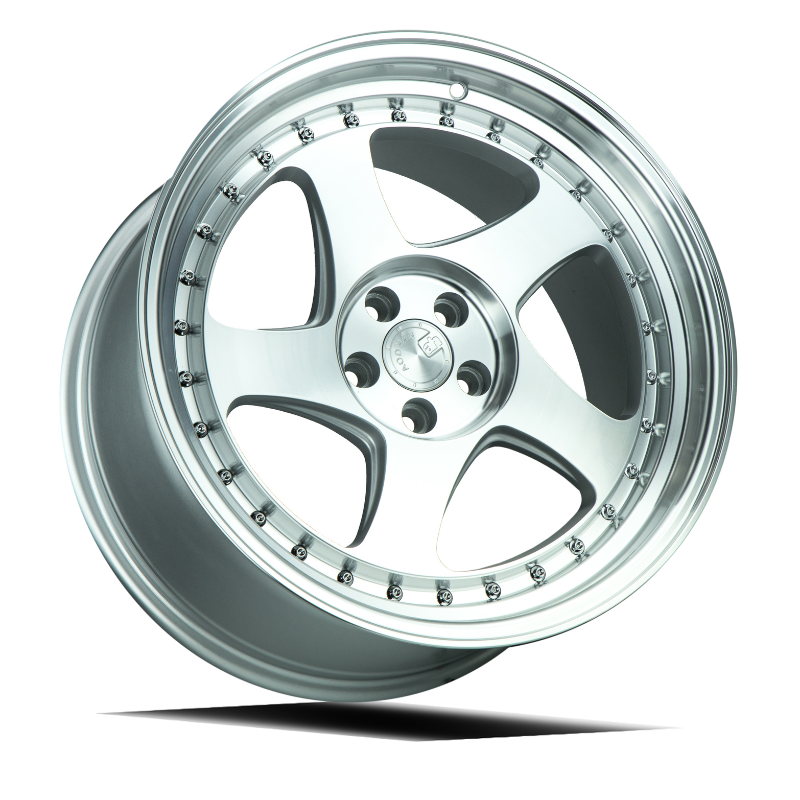

Selecting the correct alloy wheels for cars is an enormously critical decision that can impact you financially, both in your wheels’ longevity and gas mileage. When it comes to wheels, there are two sorts of wheels to pick from: normal steel wheels and alloy wheels. Each material has its own downsides and advantages, from aesthetics and maintenance to dependability.
Many older and low-priced modern vehicles feature steel wheels. Steel is inexpensive and can be effortlessly moulded into diverse forms to fulfil needs. However, nowadays, most automobiles come with alloy wheels. They are lightweight and uplift the performance and appearance of the car.
In today’s guide, we will talk about what alloy and steel wheels are, what their benefits and disadvantages are, and which one is perfect for your vehicle.
Steel wheels are manufactured of steel, the most durable type of iron. Due to its sturdiness and resilience, steel is utilised in major constructions, foundations, commercial automobiles, railway tracks, and luxury SUVs. They don’t seem exceptional, but they don’t put a burden on the pocket and serve the purpose efficiently.
Here are a few perks of alloy vs. steel wheels:
Steel wheels are perfect for folks with a low budget. That’s why they are frequently found on low-priced and older vehicles. The low price of steel is due to its simple construction procedure and the quantity of material utilised. You may have to pay more than double the amount for alloy wheels compared to normal wheels.
It is easier to repair steel wheels, and the process is swift, affordable, and simple. Eradicating a crack or dent on a steel wheel only requires hammering the dent part.
Steel wheels are sturdier than alloy wheels. The odds of cracking upon impact are minimal. The worst case is that they may bend but can be easily repaired. Thereby, you will witness them on off-road SUVs because they can endure the beating of harsh terrains.
Here are the drawbacks of steel wheels:
They are susceptible to corrosion, especially in humid settings. Nevertheless, with innovations in powder coating, their corrosion can be eliminated, and their lustre can be retained for a long time.
Alloy wheels vs. steel wheels are heavyweight and look very simple. So, they don’t appeal to car owners. That’s why you never see them on high-end cars such as sports cars and SUVs.
They offer an aesthetic enhancement to the vehicle and help in handling. They are created from a blend of metals, magnesium, and aluminium, to provide solidity and durability. They are made through a casting procedure. Newer vehicles come with factory-fitted alloy wheels.
Here are a few alloy wheel advantages:
Their most significant advantage is their design. They make automobiles look flashy and premium. These days, mid-range cars also acquire alloy wheels to uplift their looks.
Their intricate manufacturing process makes them lightweight. The reduced weight increases fuel efficiency, wheel life, handling, and initial acceleration.
They are rust and corrosion-resistant. So, they last longer and maintain their sheen and glow. They are best for individuals located in coastal areas where surface corrosion is prevalent.
Here are the downsides of alloy wheels:
They are very costly and can considerably increase the vehicle’s price. So, entry-level cars don’t come with them. The high cost is due to the intricate manufacturing process and the metals utilised.
They seem great, but they are not durable and robust. They can bend or crack upon impact. Driving with impaired alloy wheels can be hazardous as they might collapse due to the forces.
Ultimately, the decisive difference between an alloy wheel and a normal wheel comes down to your budget and inclinations. Both have advantages and drawbacks. Steel wheels are the best if your only apprehension is getting from one point to another. However, opt for alloy wheels if you want maximum performance and style.
If you want to get high-quality wheels at reasonable prices, you can rely on Kargenic.